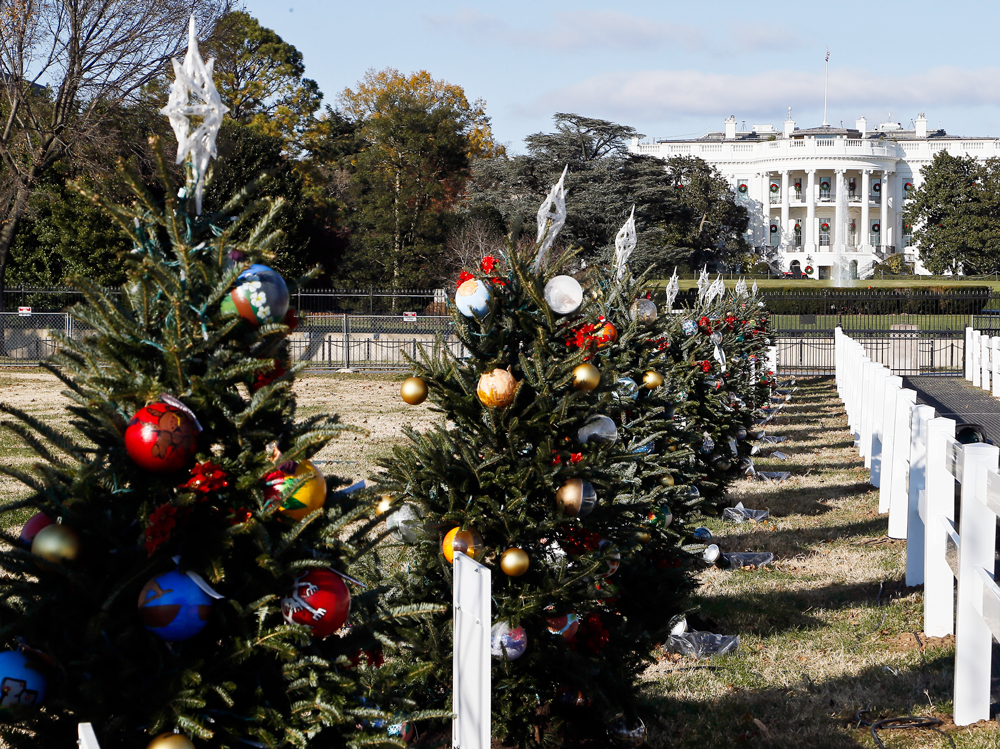Saint Leo University Polling Institute's Final Survey of 2019 Covers Everything from Christmas to the White House
Respondents also share views on college athletes and mixing sports with politics.

Respondents also share views on college athletes and mixing sports with politics.

The most recent survey work by the Saint Leo University Polling Institute predicts that about half the public is in favor of tiptoeing around controversial topics during Christmas and holiday gatherings as the nation endures impeachment proceedings against President Donald J. Trump and a prolonged Democratic primary contest for the 2020 presidential nomination.
 The polling institute is a non-partisan research project of the university that explores American political opinion on national topics, thoughts on the Catholic Church, seasonal topics, and more. The institute also conducts regular statewide polls within Florida, the home of the university and a significant state in national political trends. Detailed findings are available for review on the polling institute's website, and it is simple to keep up with new postings by following @SaintLeoPolls on Twitter.
The polling institute is a non-partisan research project of the university that explores American political opinion on national topics, thoughts on the Catholic Church, seasonal topics, and more. The institute also conducts regular statewide polls within Florida, the home of the university and a significant state in national political trends. Detailed findings are available for review on the polling institute's website, and it is simple to keep up with new postings by following @SaintLeoPolls on Twitter.
In the most recent survey of 1,000 adults conducted nationwide, in mid-November, the institute found that Trump's national approval/disapproval rating of 43.4 percent approving/55 percent disapproving had changed little since Saint Leo's previous poll in April 2019, with 41.8 percent approving/55.1 percent disapproving. That is in spite of the fact that impeachment inquiry proceedings began in October, weeks before respondents saw the November survey questions.
Frank Orlando, political scientist and director of the Saint Leo University Polling Institute, explained that the Americans had already determined their views. "Although the president's approval rating goes up and down slightly, opinions of his job performance are by now baked into the pumpkin pie," he said.
How Americans are handling the differences of opinion with one another also came up in the poll.
More than half of those polled, 58.2 percent, say that they avoid "controversial topics" at Christmas gatherings they host or attend. That compares with the 25.8 percent who say they encourage political conversation at Christmas gatherings they host or attend. There is an important wrinkle to that, cautioned Christopher Wolfe, Ph.D., who teaches psychology at Saint Leo University. The figures also reveal that those between the ages of 18 and 35 are more likely than the overall population to want to have these political conversations: 38.7 percent of them said so. The older generations were less likely than the overall average to encourage political conversation at Christmas.
With more than a third of those younger than 36 wanting to talk about the historic national political moments they are witnessing, Wolfe said, this is a good time for other generations to let them speak, and to "hear the thoughts and opinions of that beautiful mind you helped to shape." Vehement conflict within families may negatively influence the connection young people feel more so than other generations, he added.
The survey also covered a host of other topics, including opinion on whether the Catholic Church should allow priests to marry, whether college athletes should be paid by their colleges and universities, and possible state measures important in the day-to-day lives of Florida residents and citizens.
Photo: National Christmas Tree Display, downloaded from the National Park Service (www.nps.gov)